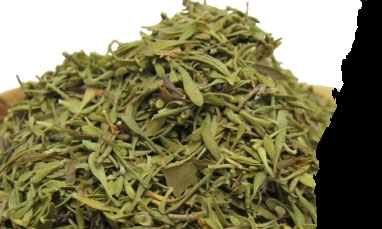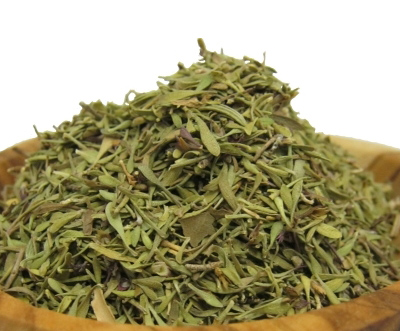Thyme producer packed with minerals and vitamins that are essential for optimum health. Its leaves are one of the richest sources of potassium, iron, calcium, manganese, magnesium, and selenium. Potassium is an important component of cell and body fluids that helps controlling heart rate and blood pressure. Manganese is used by the body as a co-factor for the antioxidant enzyme, superoxide dismutase. Iron is required for red blood cell formation.Thyme is an excellent source of vitamin C. It is a very good source of vitamin A (in the form of provitamin A carotenoid phytonutrients) as well as a good source of iron, manganese, copper, and fiber.
Thyme is a common herb and is generally used as a condiment or spice. Besides that, thyme is also used in herbal and domestic medicines. Thyme is botanically known as Thymus Vulgaris.Thyme leaves producer is produced through the steam distillation of the fresh or partially dried leaves and flowers of the thyme plant. Distillation produces a red-, brown-, or orange-colored thyme leaves, which has a strong, spicy smell. Further distillation yields white thyme leaves, a clear or pale-yellow leaves with a mild fragrance. As mentioned before, its chemical composition varies depending on the type producer of thyme used in production.
The medicinal properties of thyme come mainly from its leaves which are extracted through steam distillation of fresh flowers and leaves. The chief constituents of its leaves are Alpha Thujone, Alpha Pinene, Camphene, Beta Pinene, Para Cymene, Alpha Terpinene, Linalool, Borneol, Beta Caryophyllene, Thymol and Carvacrol.Our thyme leaves producer is extracted from Thymus vulgaris (also known as Thymus aestivus, T. ilerdensis and T. velantianus) of the Labiatae family and is also known as common or red thyme.
Thyme has been used since ancient times for its culinary, aromatic and medicinal properties. The ancient Egyptians used it as an embalming agent to preserve their deceased pharaohs. Fresh thyme should be stored in the refrigerator wrapped in a slightly damp paper towel. Dried thyme producer should be kept in a tightly sealed glass container in a cool, dark and dry place where it will keep fresh for about six months. Thyme leaves can be used in a number of ways. It can be inhaled, applied topically, or used as a mouthwash. Below are some particular ways to enjoy its benefits
Thyme has a long history of use in natural medicine in connection with chest and respiratory problems including coughs, bronchitis, and chest congestion. Only recently, however, have researchers pinpointed some of the components in thyme that bring about its healing effects. The volatile leaves components of thyme are now known to include carvacolo, borneol, geraniol, but most importantly, thymol. Thyme is an herb from the mint family. You probably recognize from your spice set. But it’s so much more than an after-thought ingredient. thyme leaves can be used to increase circulation, it should be avoided by people with high blood pressure.20 Pregnant women should steer clear of producer thyme leaves because it can stimulate menstrual flow.21 Thyme leaves should also be kept away from infants and young children because they are sensitive.
Thyme leaves strengthens the nerves, aids memory and concentration, can help with the feeling of exhaustion and combats depression, while it fortifies the lungs and helps with colds, coughs, asthma, laryngitis, sinusitis, catarrh, whooping cough, sore throats and tonsillitis.thyme leaves producer contains phenols that have antimicrobial properties, which can inhibit growth of bacteria, fungi and viruses. While these antimicrobial properties exist, they are not foolproof, according to the results of a study published in the October, 2008 issue of "Meat Science." The thyme leaves in the study only inhibited E. coli at certain concentrations and temperatures
With about 400 subspecies, its range of uses is impressive. Ancient Egyptians used it in their embalming practices, while ancient Greeks used it as incense.Thymus linearis Benth. is a species of thyme found in Pakistan and Afghanistan.A recent study found that an extract was able to significantly reduce the heart rate in rats with high blood pressure, and was also able to lower their cholesterol.





